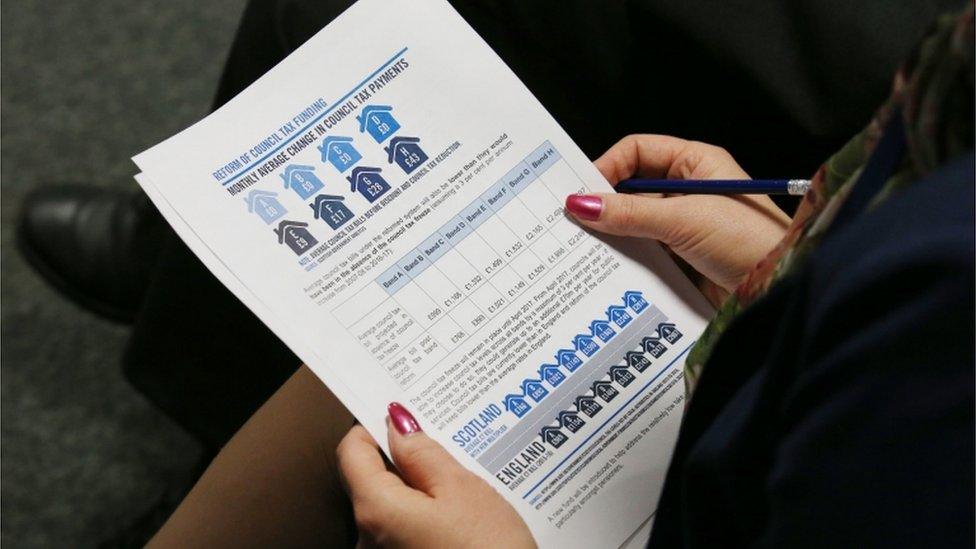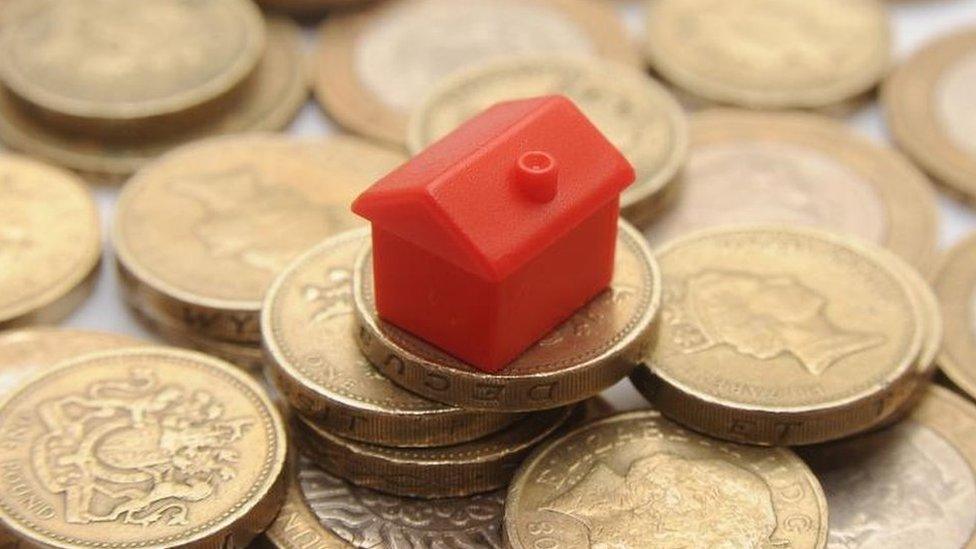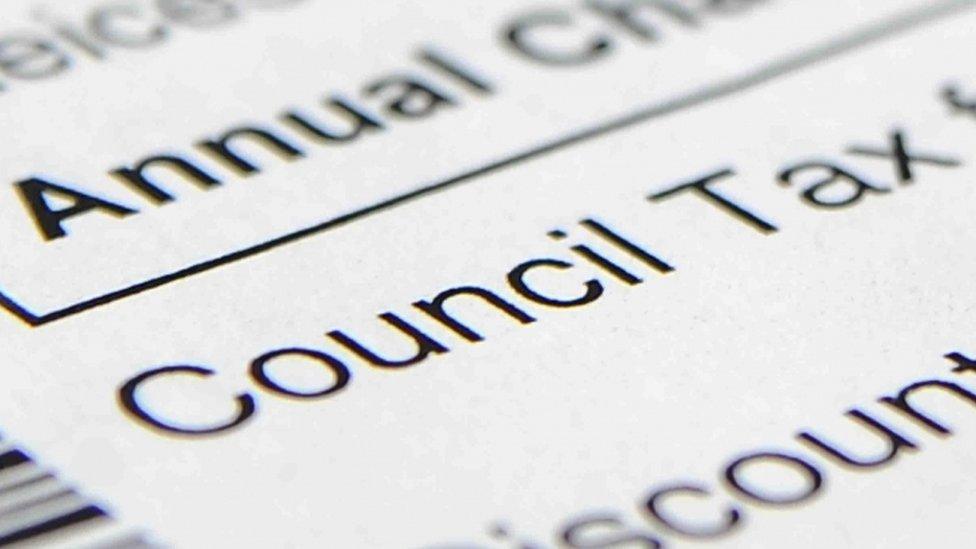West Lothian Council freezes council tax
- Published

West Lothian Council has become the fourth local authority to confirm it is freezing the basic rate of council tax.
It joins Renfrewshire, Inverclyde and South Lanarkshire to make the voluntary move.
Councils now have the power to increase the basic rate by 3%.
East Lothian Council has announced it will increase its council tax by 3% for the first time since 2008-09. It means the average Band D household will pay an additional 65p per week.
The council tax in West Lothian has been frozen for bands A to D, with the tax for Band D remaining at £1,128.
Bills for properties in Bands E to H will rise automatically from April through national changes to the way council tax is calculated which have been made by the Scottish government.
The Labour-run council said it would invest almost £398m to deliver local services, and was providing a commitment to consult West Lothian residents on future decisions, including council tax levels, over the next five years.
After agreeing the council budget for 2017/18, council leader John McGinty, said: "Although the Scottish government has provided Scottish councils with some flexibility around council tax this year, any further increases in council tax would fall far short of what is needed to plug our budget gap of £9.8m and significant budget cuts would still be needed.
"We have taken the decision therefore not to raise council tax further because we recognise that finances remain tight for families not just councils, and it delivers on a promise made to West Lothian Council taxpayers.
"We believe that further increases in council tax at this time would only place greater strain on hard pressed family finances and we believe that our council tax freeze in 2017/18 will be welcomed by the majority of households, as will consultation on future decisions over the next five years."
'Tough times'
He added: We are confident that we are making the right choices for our communities and that our residents' aspirations are reflected in our budget.
"Our aim in setting this budget is to ensure that we find a balance between delivering important services and supporting local families as they also look to balance their own household budgets in tough times."
He said the council would be investing in areas such as employment programmes, anti-poverty measures, additional money for grants to voluntary organisations and more funding for town and village centres.
Additional investment areas in 2017/18 include:
Freeze in school meal prices
Protect the alcohol diversionary fund
Funding to extend Discretionary Housing Payments
Additional funding for early years numeracy and literacy
Additional funding for anti-poverty work
Expansion of the school holiday lunch club scheme
Gala Day and festivals support fund
Additional support for foodbanks/credit union
Extend the council graduate apprenticeship scheme
Social care and health initiatives
- Published15 February 2017

- Published2 March 2017
